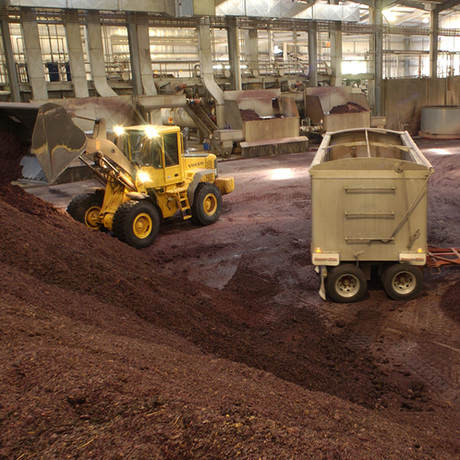Wine waste becomes high-end gin

A South Australian company that reformulates wine industry waste into value-add products is helping to drive Australia’s booming craft spirits sector.
Established in 1930, Barossa-based Tarac Technologies is Australia’s largest producer of high-quality grape spirit, which it sells back to the wine industry or to beverage producers around the globe, including more than 50 of Australia’s boutique distillers.
The company processes 40 million litres of distillation wine and lees and more than 120,000 tonnes of grape marc at its sites in Nuriootpa, Berri and Griffith, to ultimately produce about 10 million litres of grape spirit a year.
CEO Jeremy Blanks said high-strength grape alcohol was a core product across a number of styles, including neutral grape spirit, brandy spirit, fortifying spirit, matured brandy and industrial spirit.
He said the craft spirit industry in Australia was still very small but it was growing fast, and Tarac offers these new producers a cost-effective, high-quality base spirit.
“Grape spirit is not just grape spirit. If you’re using it for a gin, for example, you need the highest grade,” he said. “If you don’t have the very best quality, the flaws or the taints will come through in your end products.”
Tarac currently exports up to 80% of its grape spirit primarily to North America and Europe, where much of it goes into brandy and the wine industry.
One of the latest distillers to release a gin featuring Tarac spirit is Barossa Distilling Company, which launched the wine region’s first craft gin in July. Born out of winery Soul Growers, Barossa Distilling Company’s Generations Gin uses Tarac grape spirit base made from marc recycled from local wineries including Soul Growers.
Barossa Distilling Company Managing Director Neil Bullock said being able to source high-quality grape spirit from the region was an important part of the Generations Gin story. He said up to 80% of Australian gin companies were using Tarac spirit as a base.
Tarac uses a closed loop system where it is able to repurpose 90% of grape industry waste. It also produces grape juice concentrate and processes solid residuals and filter cake to make a range of products including tartaric acid, which is a natural product from grapes used in the wine, food, pharmaceutical and chemical industries, as soil conditioner for broad acre farming and as stock feed.
“By us managing the wine industry’s residuals we deal with what would otherwise be a significant problem and an expensive problem for the industry to deal with,” Blanks said.
“We also run a very large wastewater treatment facility next to our production plant in the Barossa and that takes all of our production wastewater and cleans it up and that comes back to us for process water or is sold for irrigation.
Are we seeing a structural shift in orange juice production?
Orange juice producers around the world face numerous challenges, including issues around supply...
Carlsberg Bulgaria installs filling technology for its canning line
For the first time ever, Carlsberg Bulgaria is canning its own beer — thanks to technology...
Guarding our seafood against vibrio parahaemolyticus
As the global appetite for seafood grows, concerns over pathogen contamination have intensified,...











